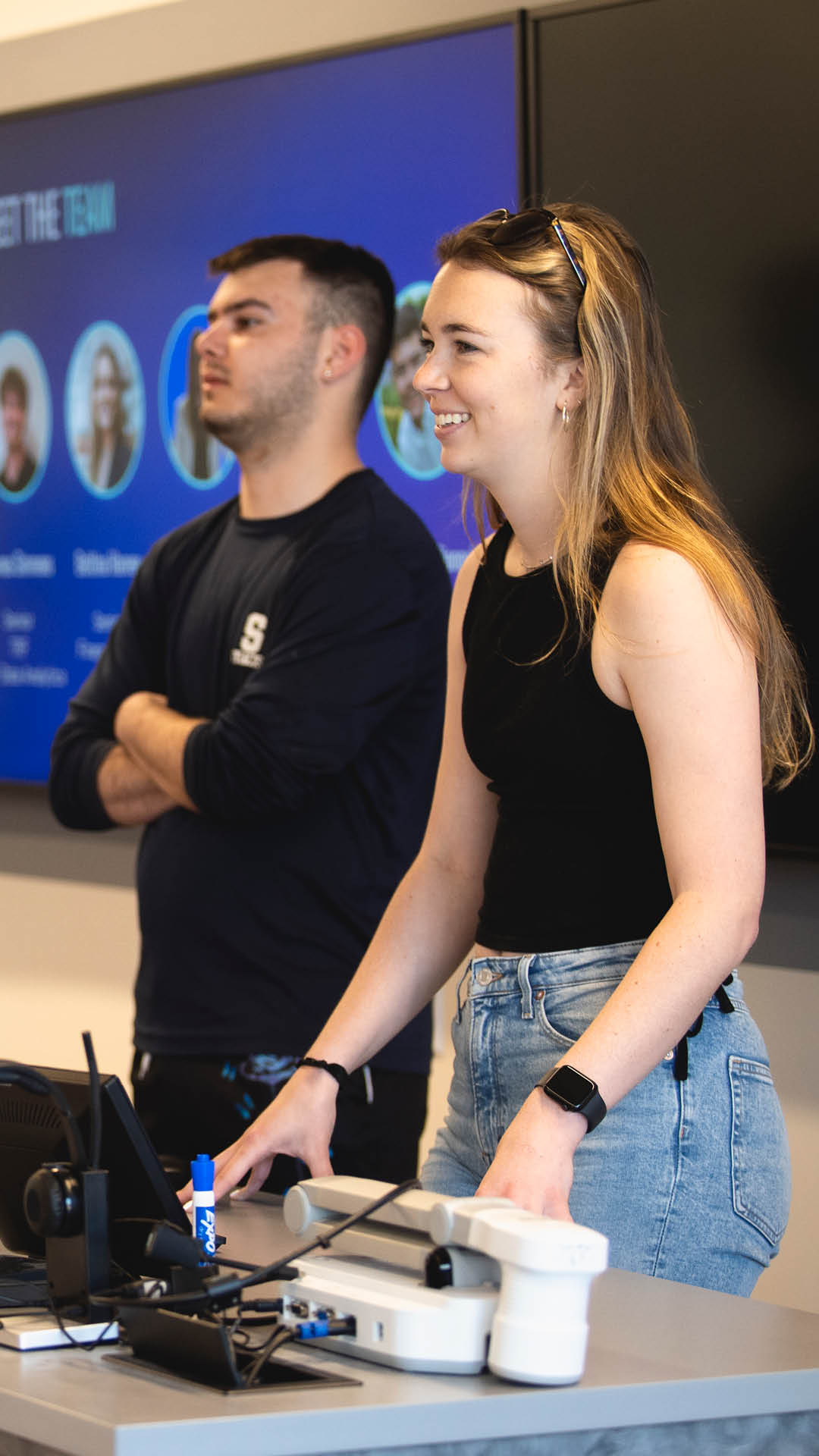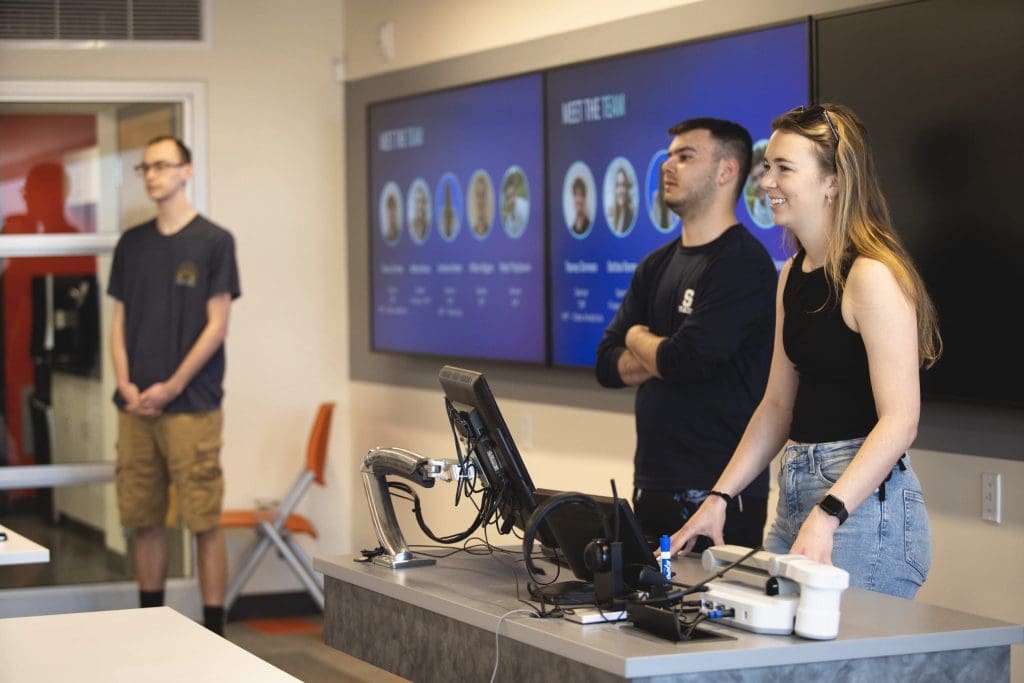Earn your bachelor’s degree in data analytics.
In today’s data-driven economy, the role of the data analyst is one of the most valued and in-demand jobs across industries. From healthcare to retail to sports and beyond, organizations of all sizes are seeking to turn complex data sets into meaningful insights and using these findings to inform every aspect of their decision making.
- Empower data-driven decision making.
- Learn to use visual and computational data science methods.
- Develop in-demand technical skills such as R and Python programming languages.
- Explore cutting-edge new approaches like machine learning and artificial intelligence (AI).
- Personalize your degree with one of six concentrations or a minor.
Quick Info
Next term starts Fall 2025
120 Total Credit Hours
What can I do with a bachelor’s degree in data analytics?
You’ll graduate ready to help organizations make product, policy, and program choices as a data scientist. Analyze consumer behavior as a marketing analyst. Influence policy decisions while working with the government. Or identify ways to help underserved communities at a nonprofit. No matter what you choose, the possibilities in data analytics are endless.
SAMPLE JOB TITLES
- Data Scientist
- Consultant
- Data Analyst
- Data Engineer
- Health Data Analyst
- AI Product Manager
- Business Analyst
FASTEST-GROWING
FIELD IN THE USA
Bureau of Labor Statistics
MEDIAN SALARY FOR
DATA SCIENTISTS
Bureau of Labor Statistics
Expected Growth of
Data Scientist jobs
Much faster than average, BLS
Courses & Curriculum
The B.S. in Applied Data Analytics is 120 credits. The curriculum blends major courses with a general core in information technology. Students also have the opportunity to explore other disciplines with liberal arts requirements.
Applied Data Analytics Primary Core: 21-22 credits
Analytical Course Electives: 9 credits
Concentrations and Electives: 15 credits
University Wide Requirements
Find Your Community.
Welcome to the iSchool. Here, you’ll build a foundation of technical and analytical skills. Then use them to explore anything from big data to sports analytics and beyond. We’re a tight-knit group that encourages collaboration and invites new ideas and perspectives. You won’t find many suits in our hallways. We’re the fast-paced startup of the Syracuse campus. Join us, and explore your future without boundaries.


Gain Experience.
Lots of business programs will teach you the theory of data analytics. Here, we’re more into the roll-up-your-sleeves approach. That’s why so many of our students are doing major consulting projects while they’re still in school. Interning with some of the most innovative companies in the world. And traveling the globe to see how companies are applying data analytics firsthand.


Pursue Your Future.
Every year our graduates experience the highest job placement rates and starting salaries of any school at Syracuse. That’s because they have the ideal combination of technical knowledge and business acumen. From Google, to Amazon, to EY, to Disney, today’s most successful companies are looking for iSchoolers like you.
last year’s class
rate of any school at the university



